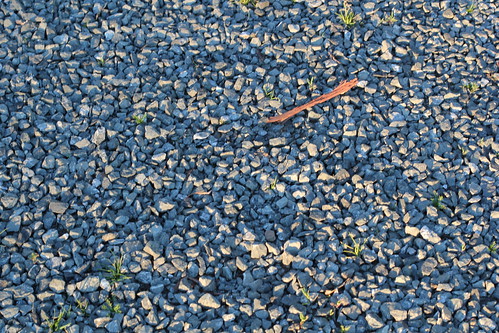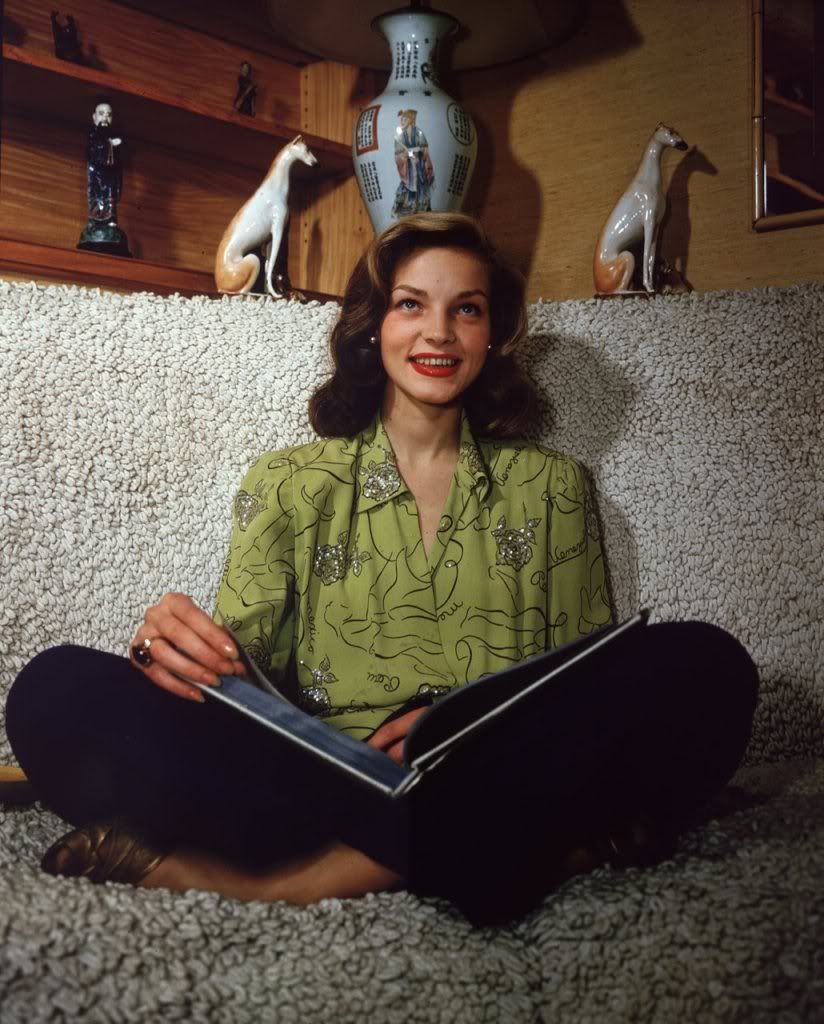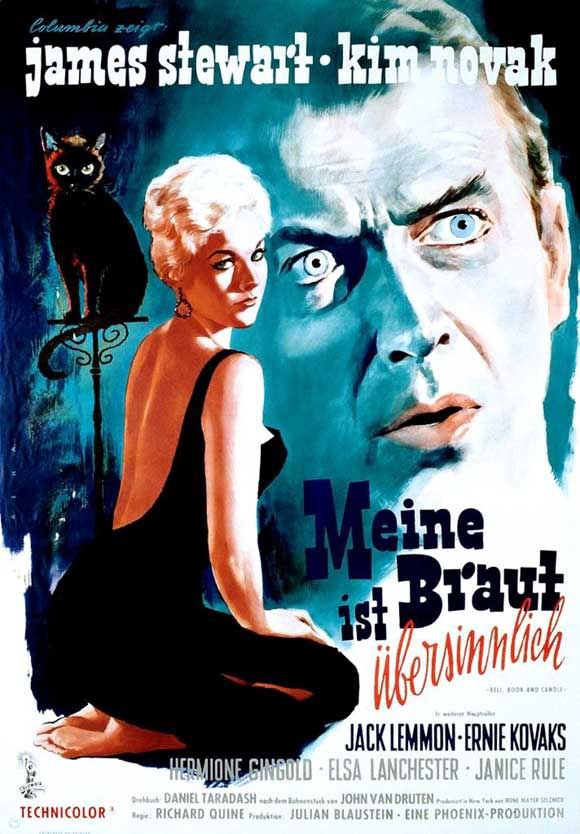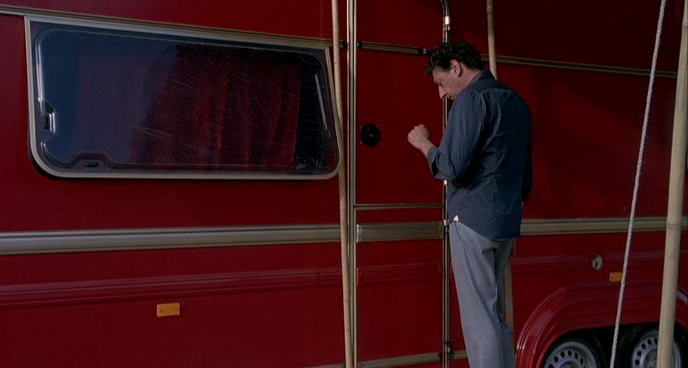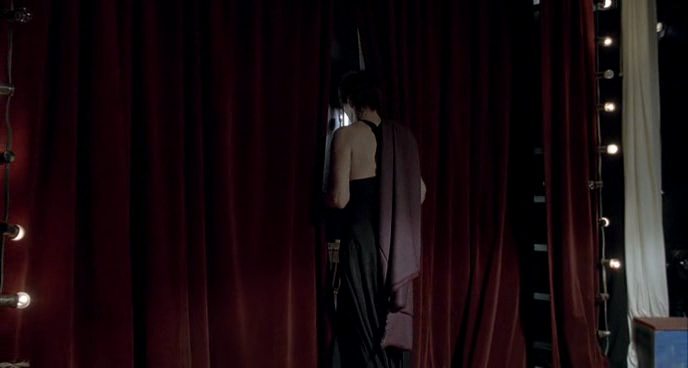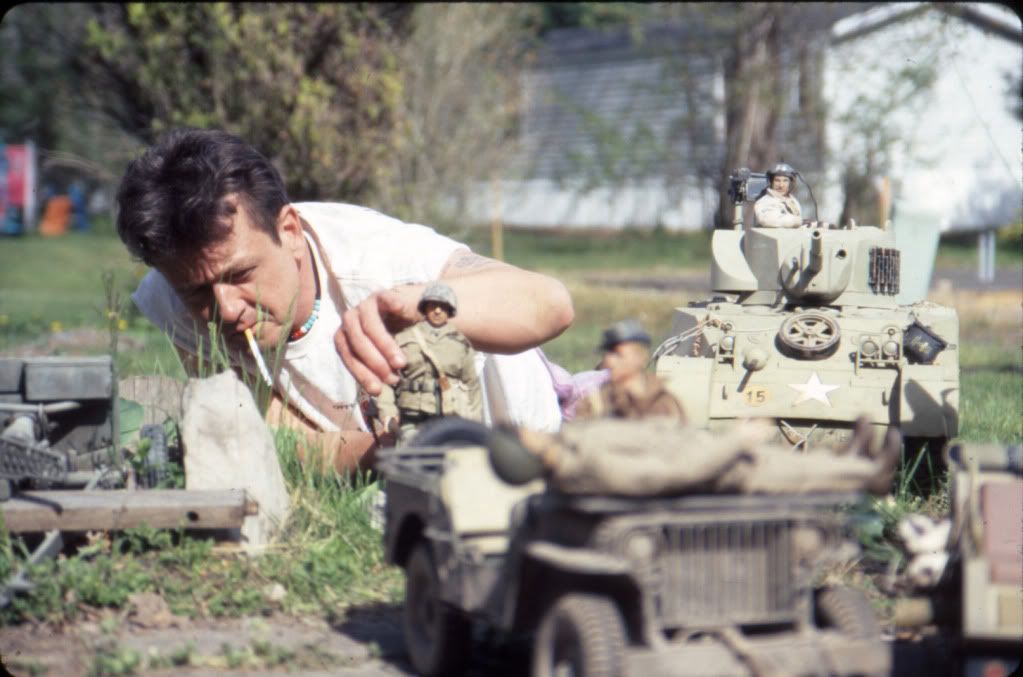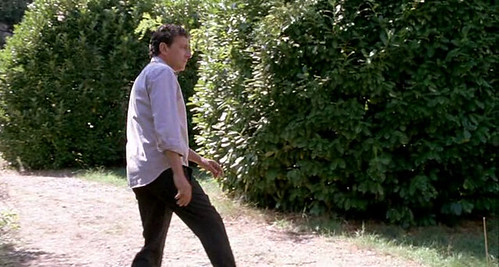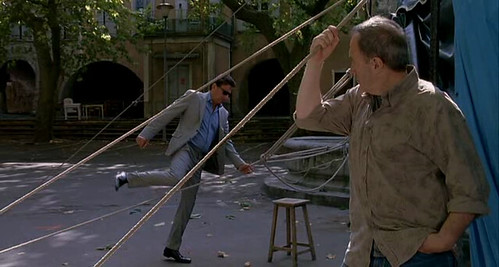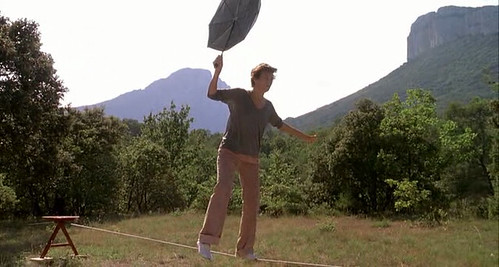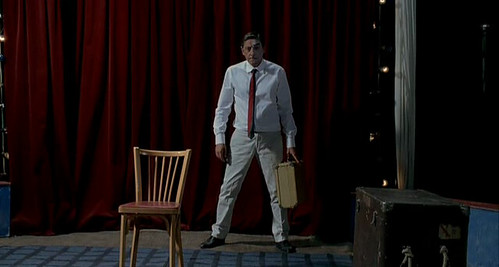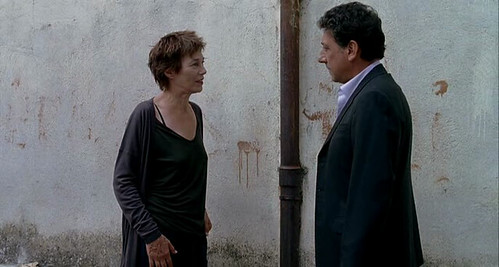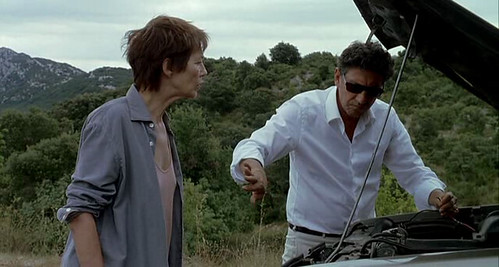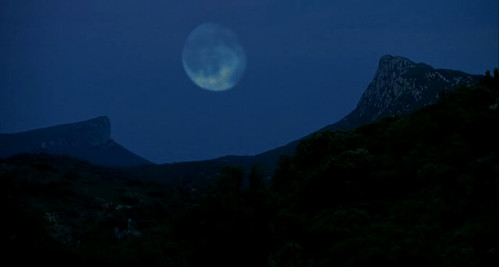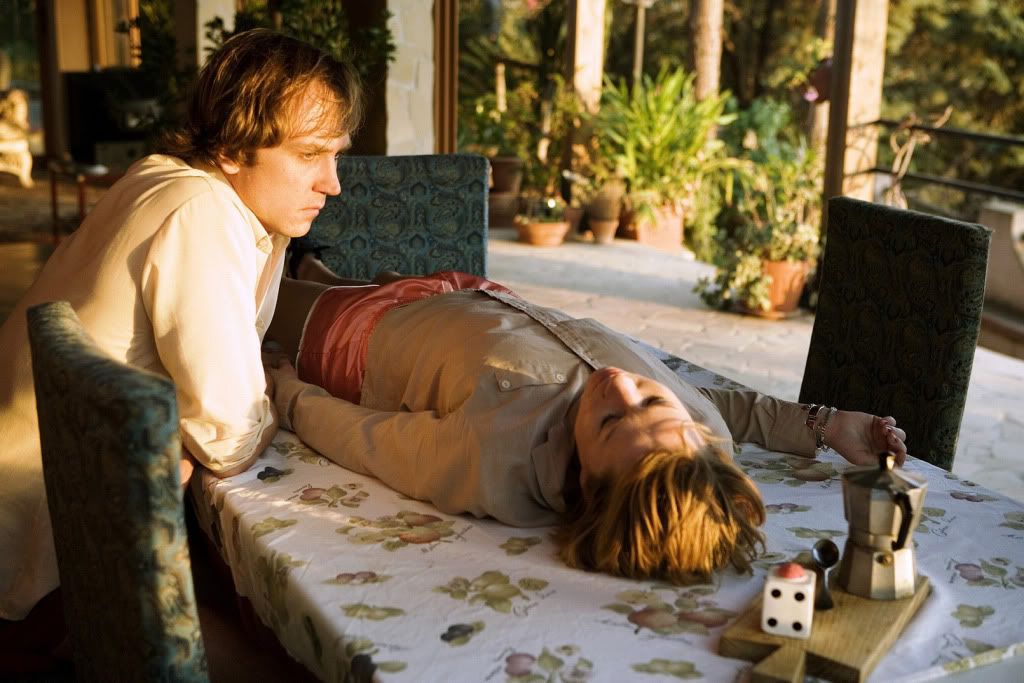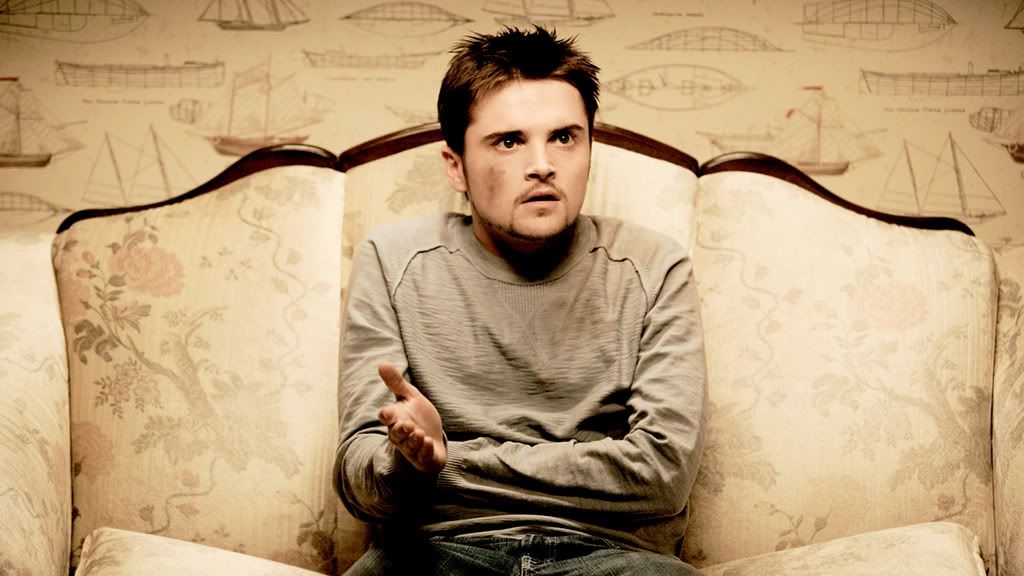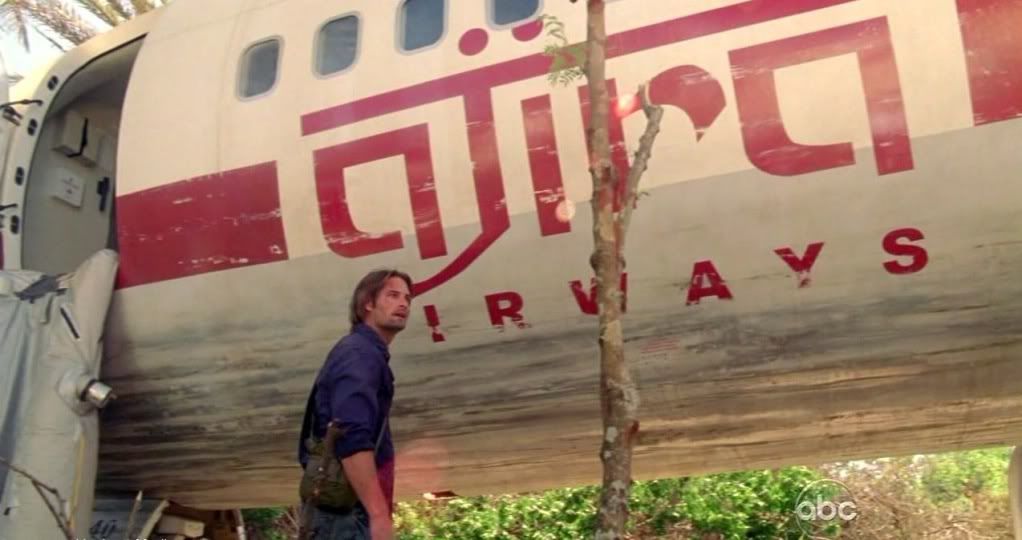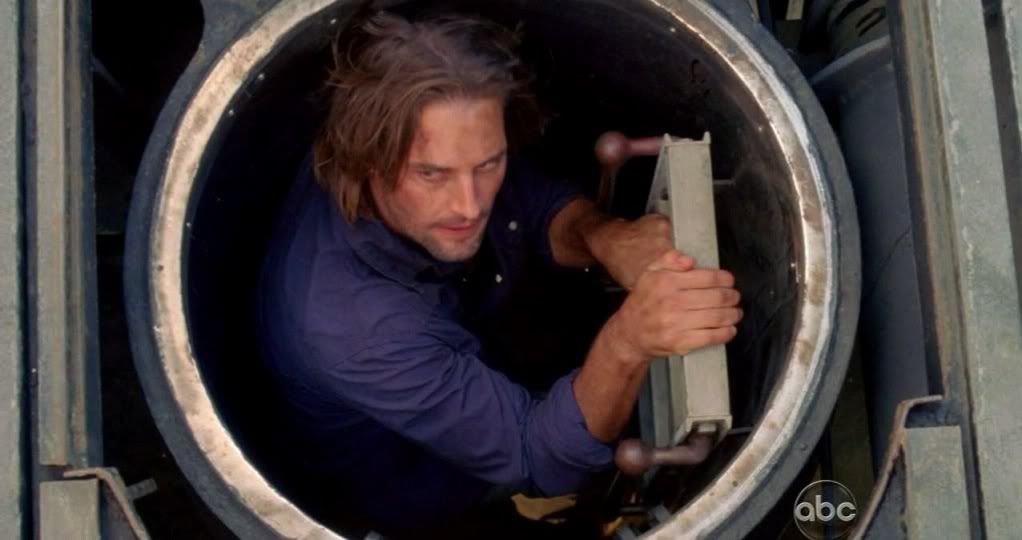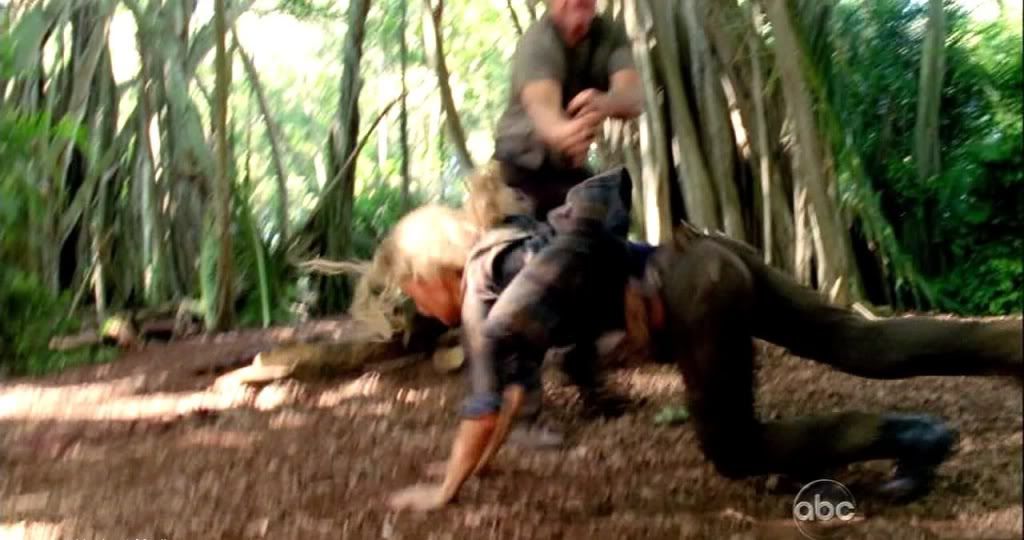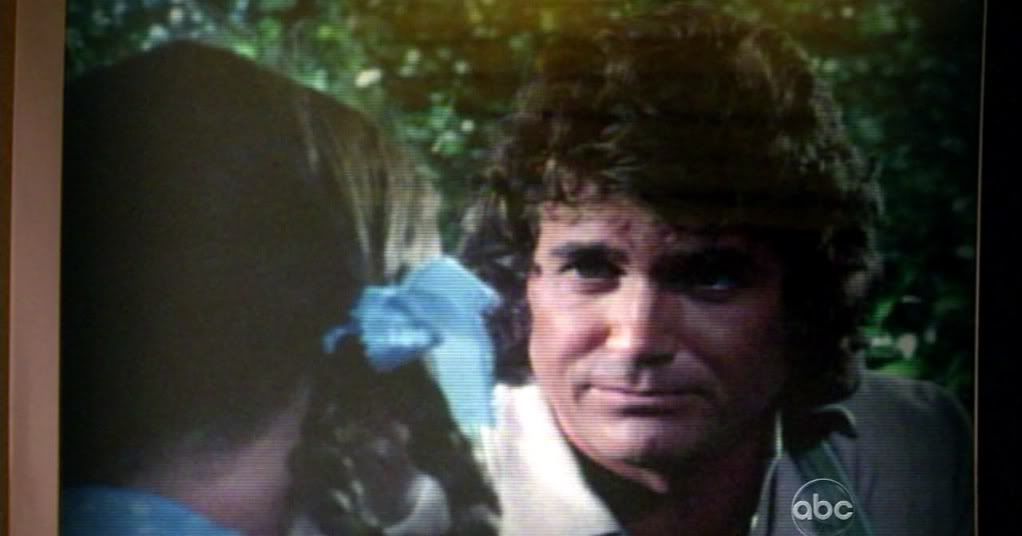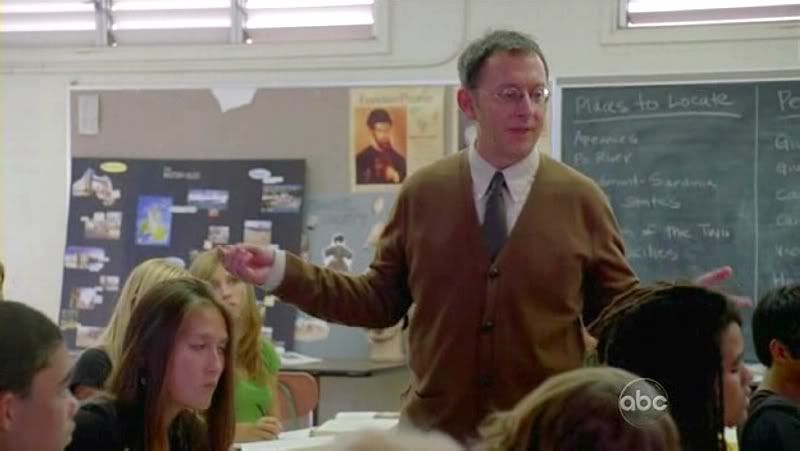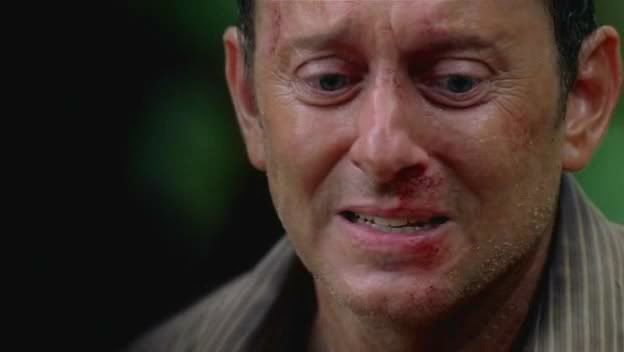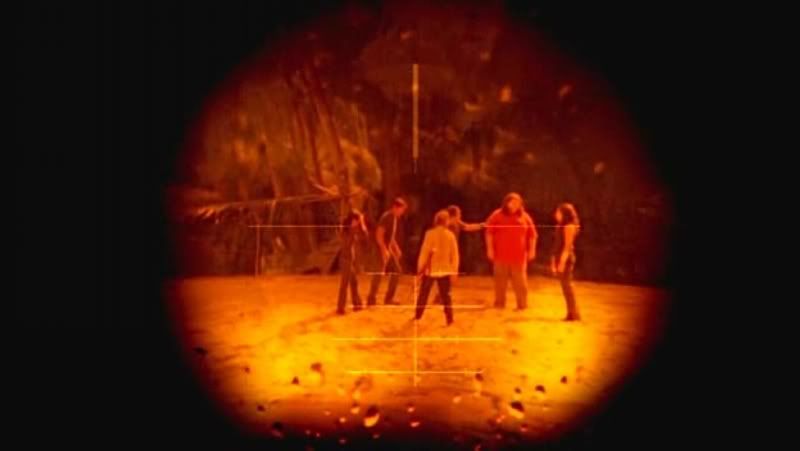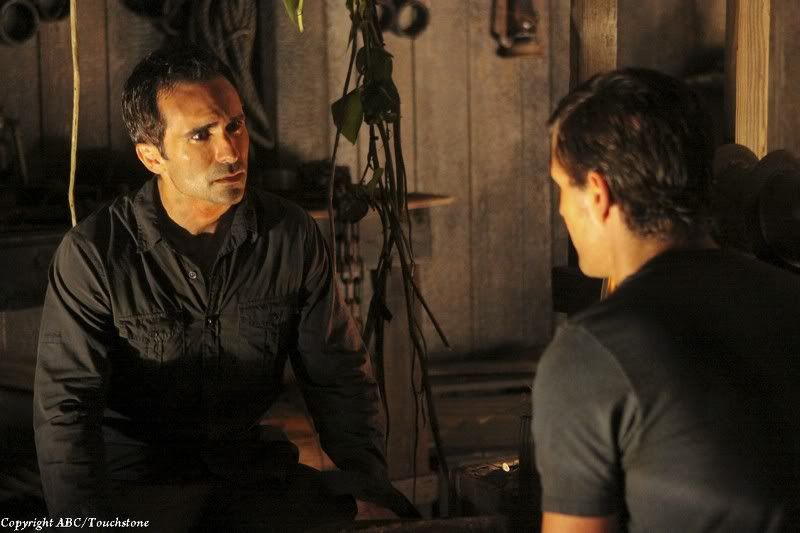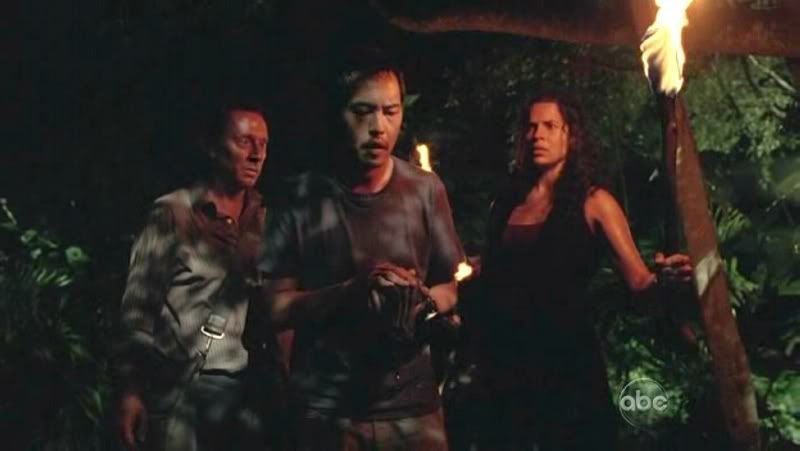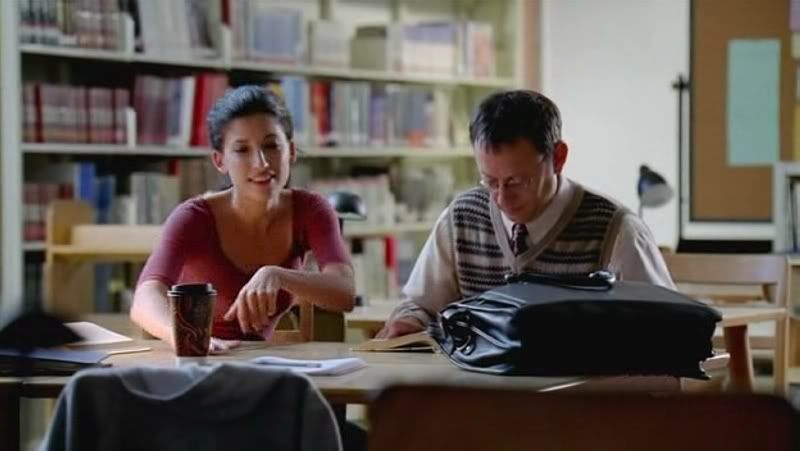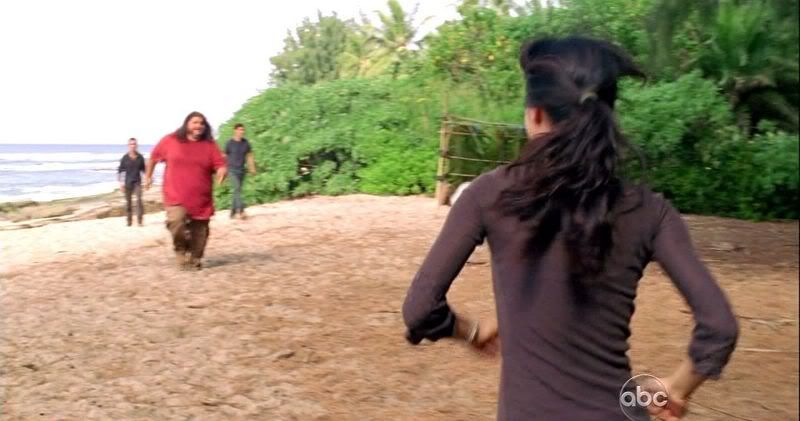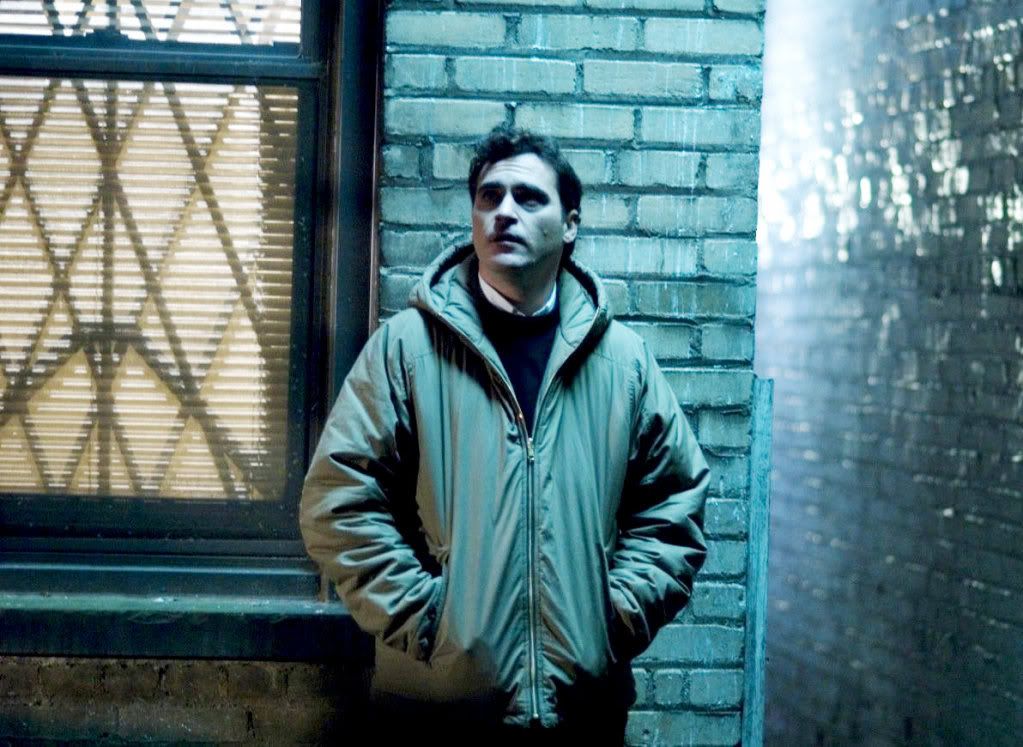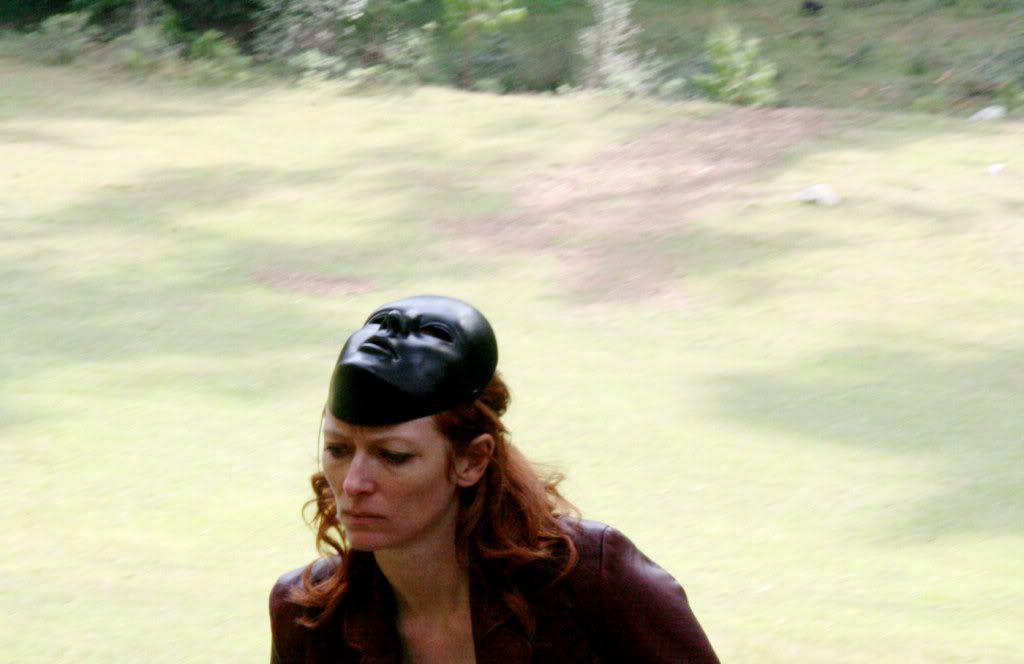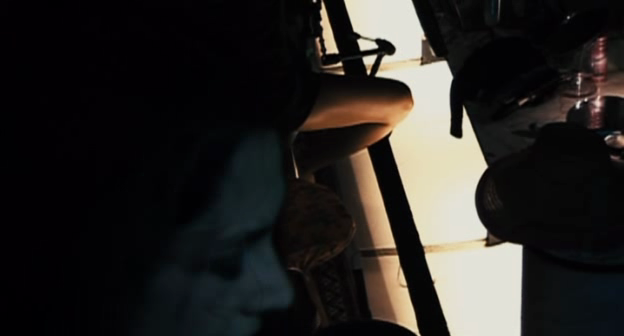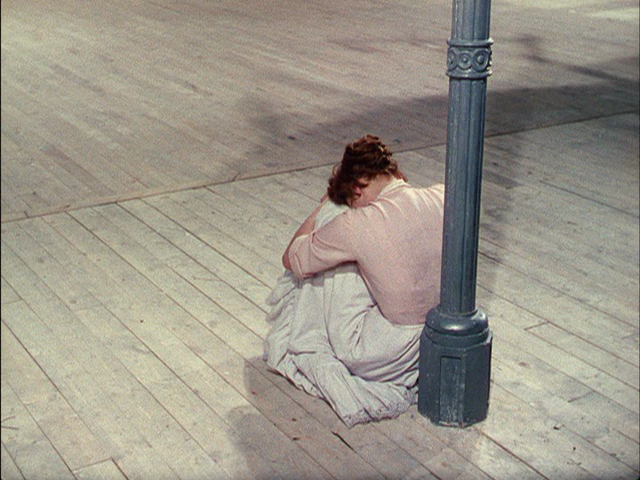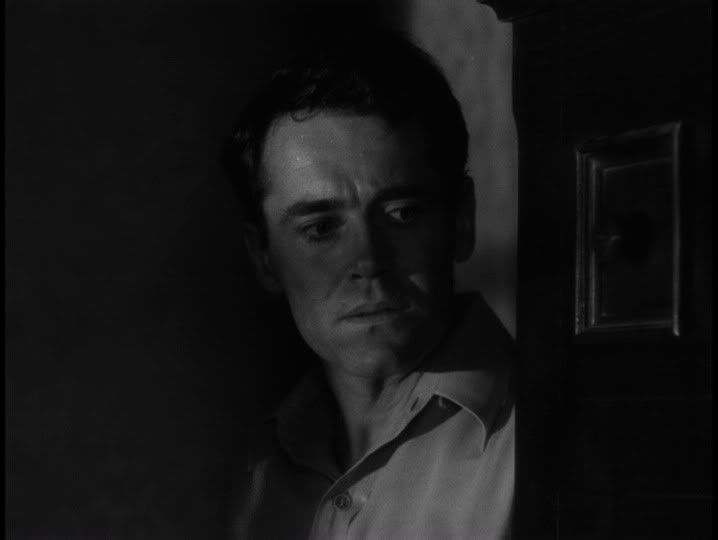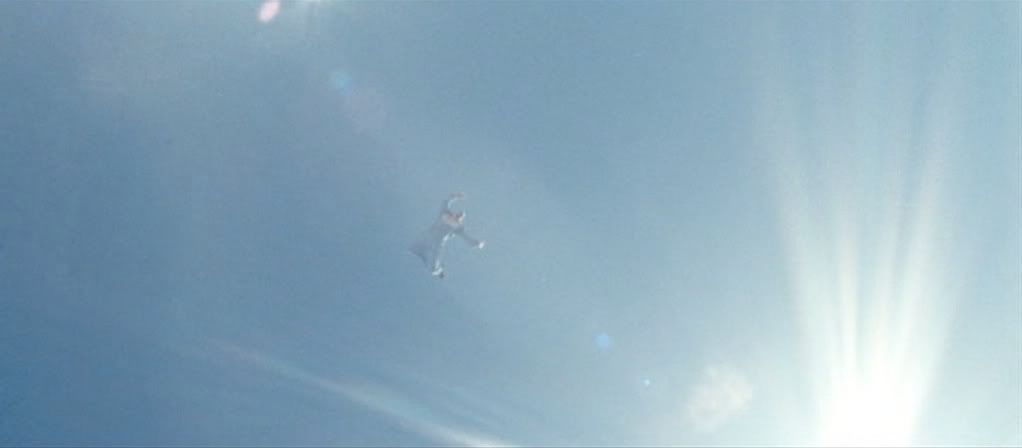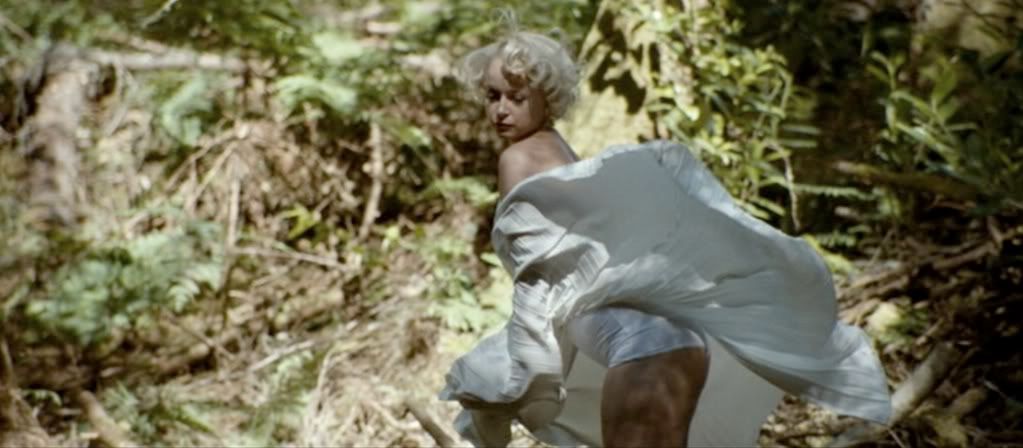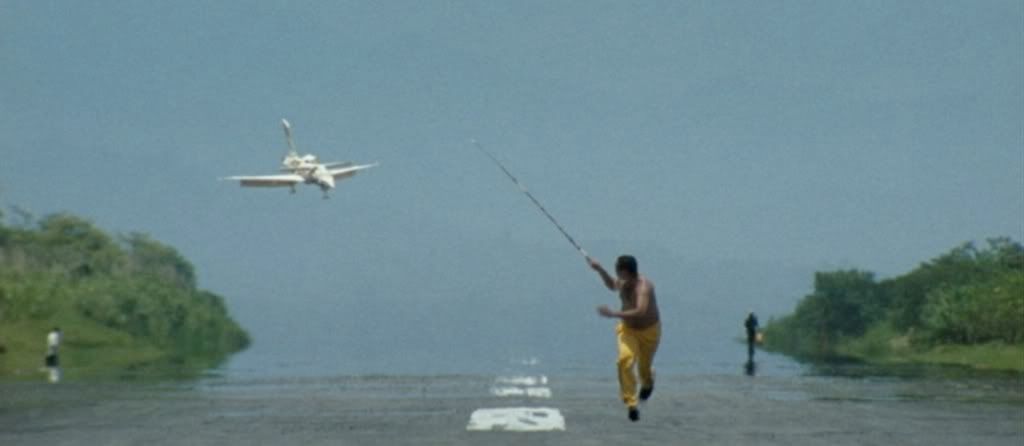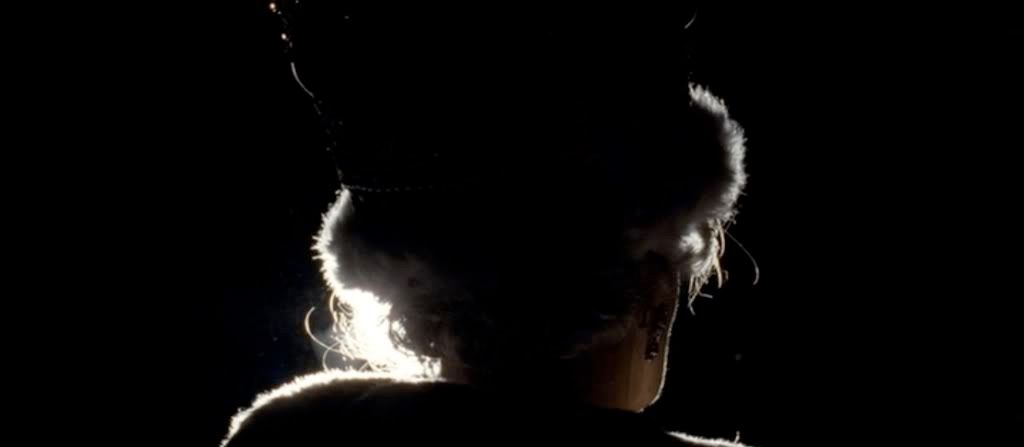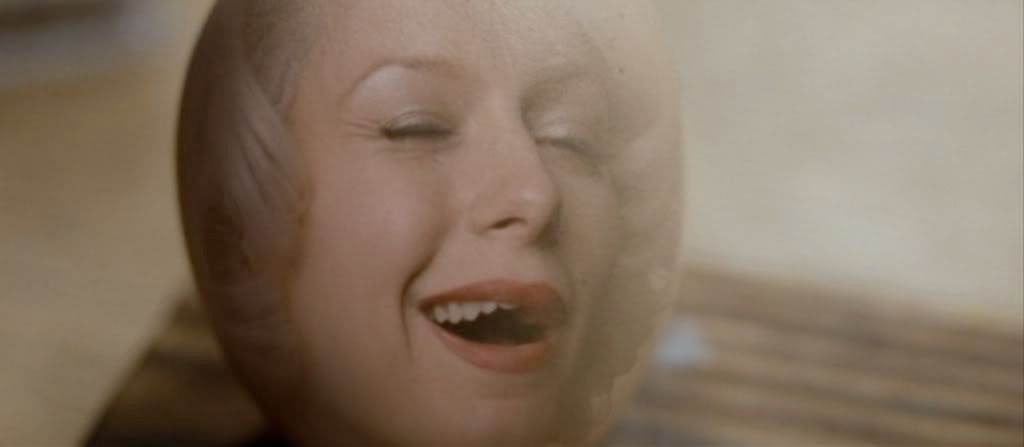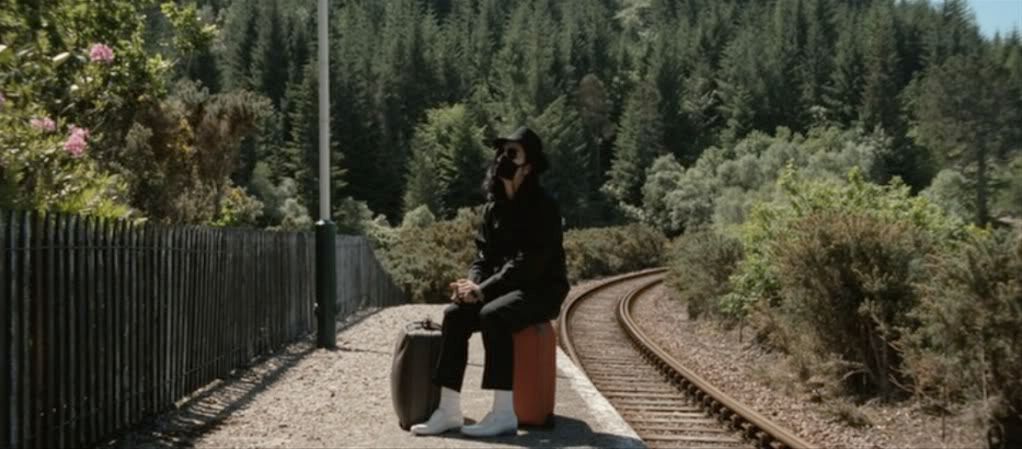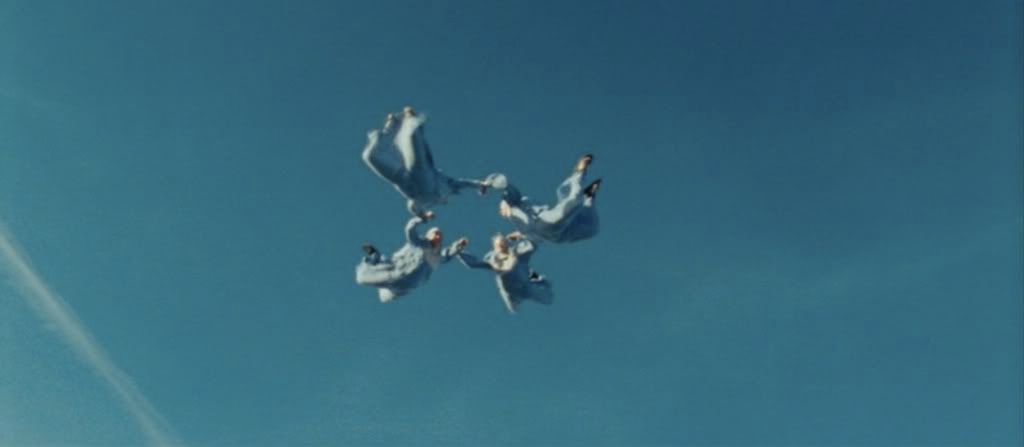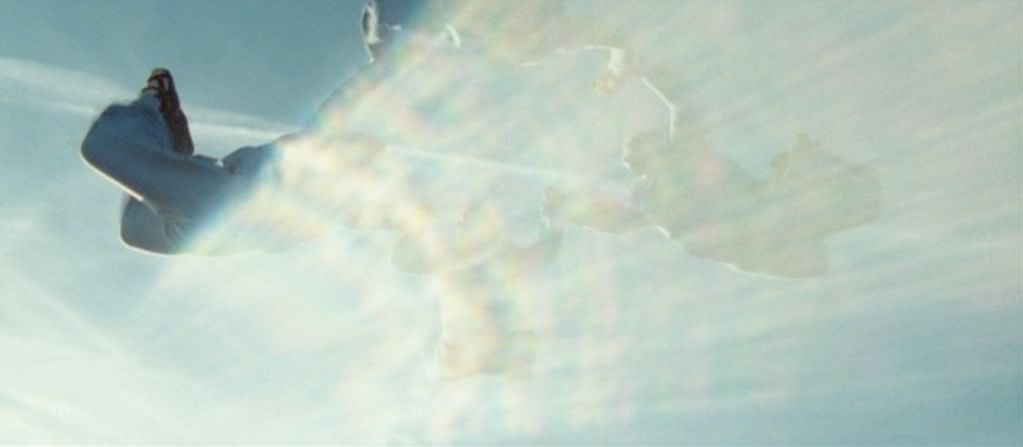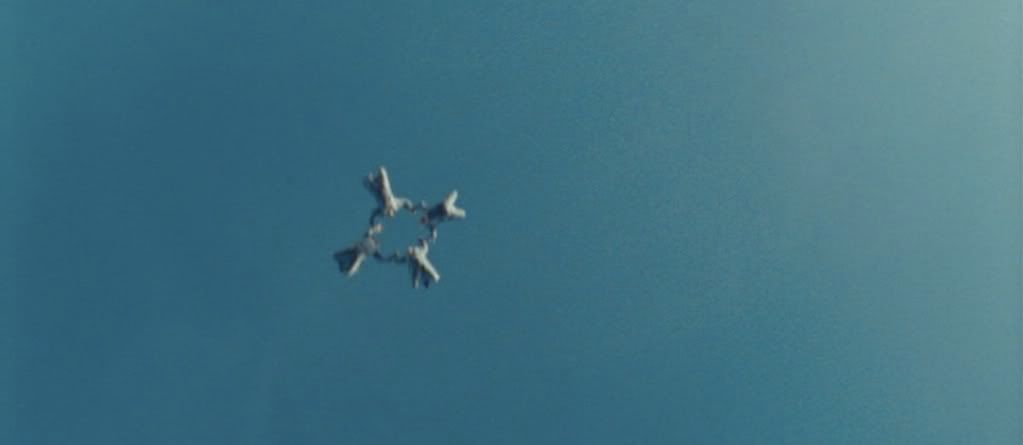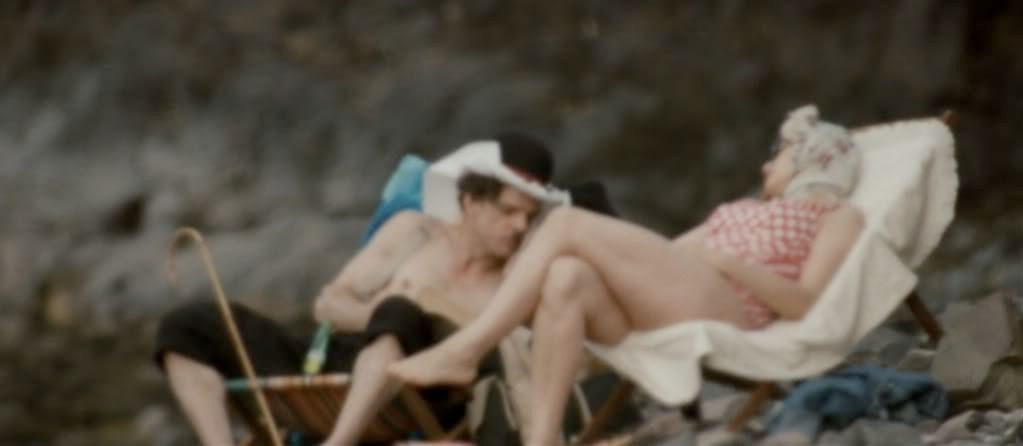by Ryland Walker Knight
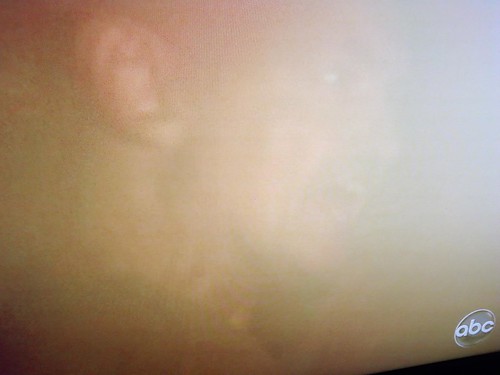
The stir 'em silly bit of copy at the end of this week's preview for next week's episode declared, "The time for questions is over." I guess that means we're supposed to buy into Dark Locke's spiel to Sawyer about Jacob purportedly manipulating all our principals into trajectories aimed at the island. And I don't know if I do. I don't doubt that Jacob played a part in getting these people to the island, but I do doubt whether his endgame had someone else take over ever. The speech was edited to support Dark Locke, of course, with the reminders of Jacob's appearances, but what about this newly instantiated dude would make you think he's telling the truth? Richard's admonition—that this pillar of smoke is a pillar of evil intent on eradicating everybody on the island—makes more sense, and colors my suspicion that I'm sure others share: that cave-list of "candidates" was never Jacob's, in fact that cave was his neither, but rather that shadowy space is a province of the dark figure.
Like "The Constant," this episode has a great, polyvalent title. Unlike "The Constant," it's mostly a table setting episode. But boy howdy was I pleased to have it focus on Locke and his variant personalities/manifestations/threads. What's more, we got a lot of Sawyer acting tough and sorta smart. Makes sense, too, as Locke and Sawyer were always looking for a substitute, a place to displace their displeasures with the world, be it faith or be it a woman or be it a walkabout or be it drink. So it's a cruel joke that one of Locke-prime's solutions to this problem is to become a literal substitute, albeit a stand-in who sits.
—Would they really give a dude in a wheelchair the gym gig? And it's a crueler joke to have this substitute man of faith prey on Sawyer's fears and anger with a con designed to prod him where it hurts. That is, to tell him, the con man, that he got conned into this life.
But, of course, it also makes sense that Sawyer, drunk as a skunk and a mess in foul/ed skivvies, can recognize at first sight that this isn't actually John Locke since we've seen before that Sawyer knows how to read people. Goes with being a con man. Or so it seems. Seems he's gullible like anybody, as that cave sequence illuminates, when the carrot (or donut) dangled is just what he wants. Seems he's got his obvious foibles like anybody. But on Josh Holloway they always look good, even in a grimace, and plausible. Put otherwise, I think he's an underrated actor among this ensemble. Holloway may not be as subtle as Terry O'Quinn (did you notice his taken-aback gulp when Katy Segal tears up the card?), with his muscling through the difficulties, but, like a good con man, he doesn't come off forced. His character's an actor so it fits they found a slick s-o-b with charm and dimples to spare to fill those boots.
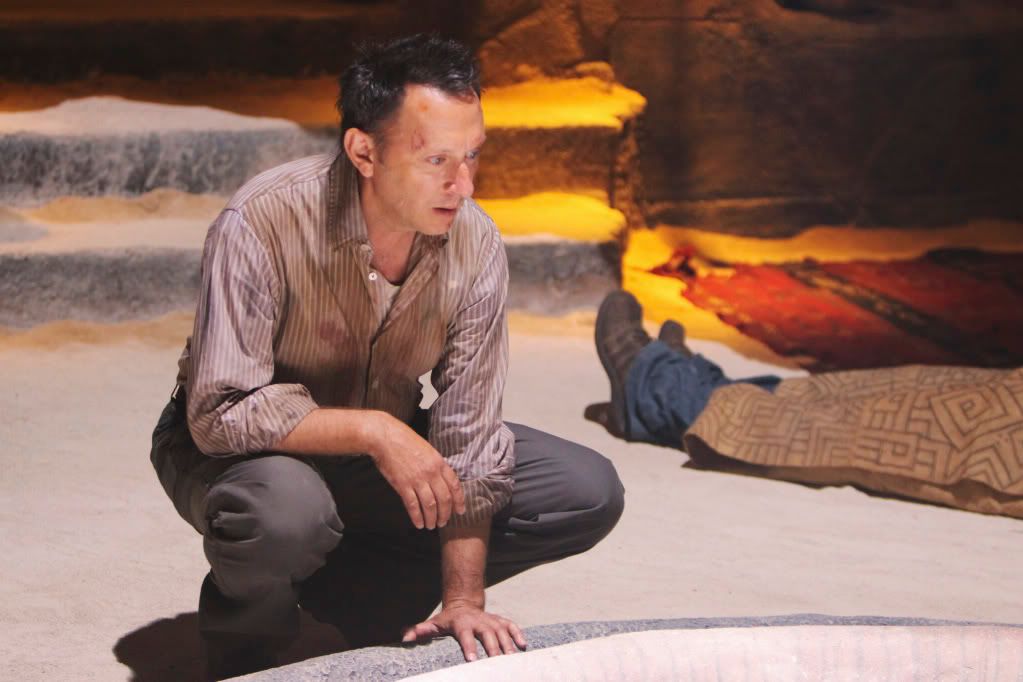
The series' other great con man, Ben Linus, is also a good actor played by a good actor. But Michael Emerson's all about restraint. His lies are built like forts, guarded calculations from on high. He's forever trying to hold onto an upper hand. Which is what makes his half-assed eulogy for the real John Locke stirring, if not moving: now, in the face of what this Dark Locke is capable of, including manipulating him into murder, Ben's willing to admit his shortcomings as a human. However, the lies won't ever stop with Ben, it appears, as he's quick to pawn off his part in Jacob's demise in order to appease Ilana's grief. However, his role on the island this week wasn't nearly as intriguing as his cameo back in 2004's sidelong world. I don't know how putting the island underwater in the 1970s puts a heeled-by-the-temple teenage Ben back into "the real world" to grow into this European History teacher, but I'll play along with it if it means more scenes in that thread between him and the wheelchair-bound Locke. I do hope they return to them in that teacher's lounge, playing chess and drinking tea and needling one another, to echo their games on the island. I do hope it spins out that they were being groomed to replace Jacob and his dark counterpart. But such wishful thinking will only lead to disappointment.
More important is what this cave represents for the show. Dark Locke may not be telling the whole truth about it, but it tells us another truth about the island: this figure, who claims he was once a man, has been hunting for some time. And there's something about this Locke shell that doesn't quite meet his needs. If he
is recruiting, as Ilana says, he very well may be recruiting another substitute body to take over. Getting off the island "together" with Sawyer may just lead to Sawyer forking over his characteristic common sense and improvisational skills, if not also his body. Or, it could fulfill Richard's prediction and fear, and prove the temple's protective steps true, by forcing James to turn on his old friends one hundred percent. It's a great cliffhanger. For one, it's literally set on (or in) a cliff. For another, being set in a cave, you know there won't be any turning back. You know that list will whittle down one way or another. You know that "inside joke" of tossing the white stone into the waves signals a moral imbalance, a ledger on the tilt.
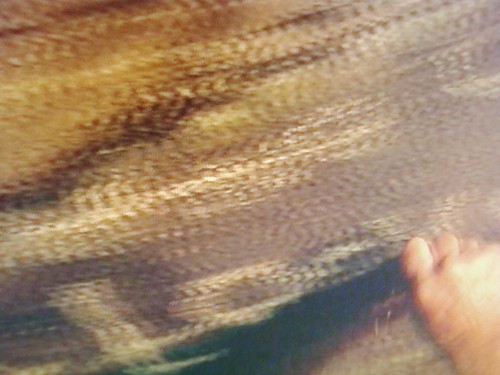
Here's hoping next week's "The Lighthouse" opens more than a yellow eye on the so-questioned legacy of this island, and on the so-announced limitations of what Locke (real, dead, or Dark) can or cannot do with the time and the body that's left to him.
[
EVENING UPDATE: We're live at
The House.]



